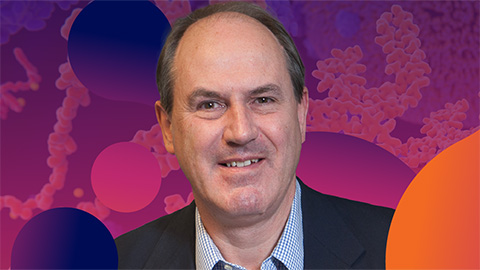MCP seeks new editor-in-chief
The American Society for Biochemistry and Molecular Biology is accepting applications and nominations for the next editor-in-chief of the journal Molecular & Cellular Proteomics.

MCP is a gold open-access journal that fosters the development and applications of proteomics in both basic and translational research by publishing research at the forefront of proteomics, protein synthesis and bioinformatics.
Alma Burlingame of the University of California, San Francisco, who was the founding deputy editor of the journal and only its second editor-in-chief, will step down at the end of the year after more than two decades of service.

“Under Al’s leadership, MCP has become known for setting the standards in the field,” Isabel Casas, the ASBMB’s publications director said. “Readers of the journal trust that the papers it publishes have been through rigorous layers of review, and they appreciate the journal’s commitment to reproducibility and making new tools accessible to the community.”
Stephen Miller, the society’s executive director and veteran staff member, said the next editor-in-chief will have the opportunity to grow and advance the journal. “MCP is the preeminent open-access journal dedicated to proteomics, and we are excited for the next editor-in-chief to provide visionary strategic direction that continuously improves the journal’s already very strong reputation,” Miller said.
You can read the job description here. All applications and nominations should be sent to EICsearch@asbmb.org.
Enjoy reading ASBMB Today?
Become a member to receive the print edition four times a year and the digital edition monthly.
Learn moreFeatured jobs
from the ASBMB career center
Get the latest from ASBMB Today
Enter your email address, and we’ll send you a weekly email with recent articles, interviews and more.
Latest in Careers
Careers highlights or most popular articles

Cooking up science engagement, a fermentation experiment
By blending hands-on cooking with scientific experimentation, a study from a team at North Carolina State University demonstrates how culinary creation can spark scientific discovery and deepen public engagement with researchers.

Upcoming opportunities
ASBMB's PROLAB award helps graduate students and postdoctoral fellows spend up to six months in U.S. or Canadian labs.

From humble beginnings to unlocking lysosomal secrets
Monther Abu–Remaileh will receive the ASBMB’s 2026 Walter A. Shaw Young Investigator Award in Lipid Research at the ASBMB Annual Meeting, March 7-10 in Washington, D.C.

Chemistry meets biology to thwart parasites
Margaret Phillips will receive the Alice and C. C. Wang Award in Molecular Parasitology at the ASBMB Annual Meeting, March 7-10 in Washington, D.C.

Decoding how bacteria flip host’s molecular switches
Kim Orth will receive the Earl and Thressa Stadtman Distinguished Scientists Award at the ASBMB Annual Meeting, March 7–10, just outside of Washington, D.C.

Defining JNKs: Targets for drug discovery
Roger Davis will receive the Bert and Natalie Vallee Award in Biomedical Science at the ASBMB Annual Meeting, March 7–10, just outside of Washington, D.C.

